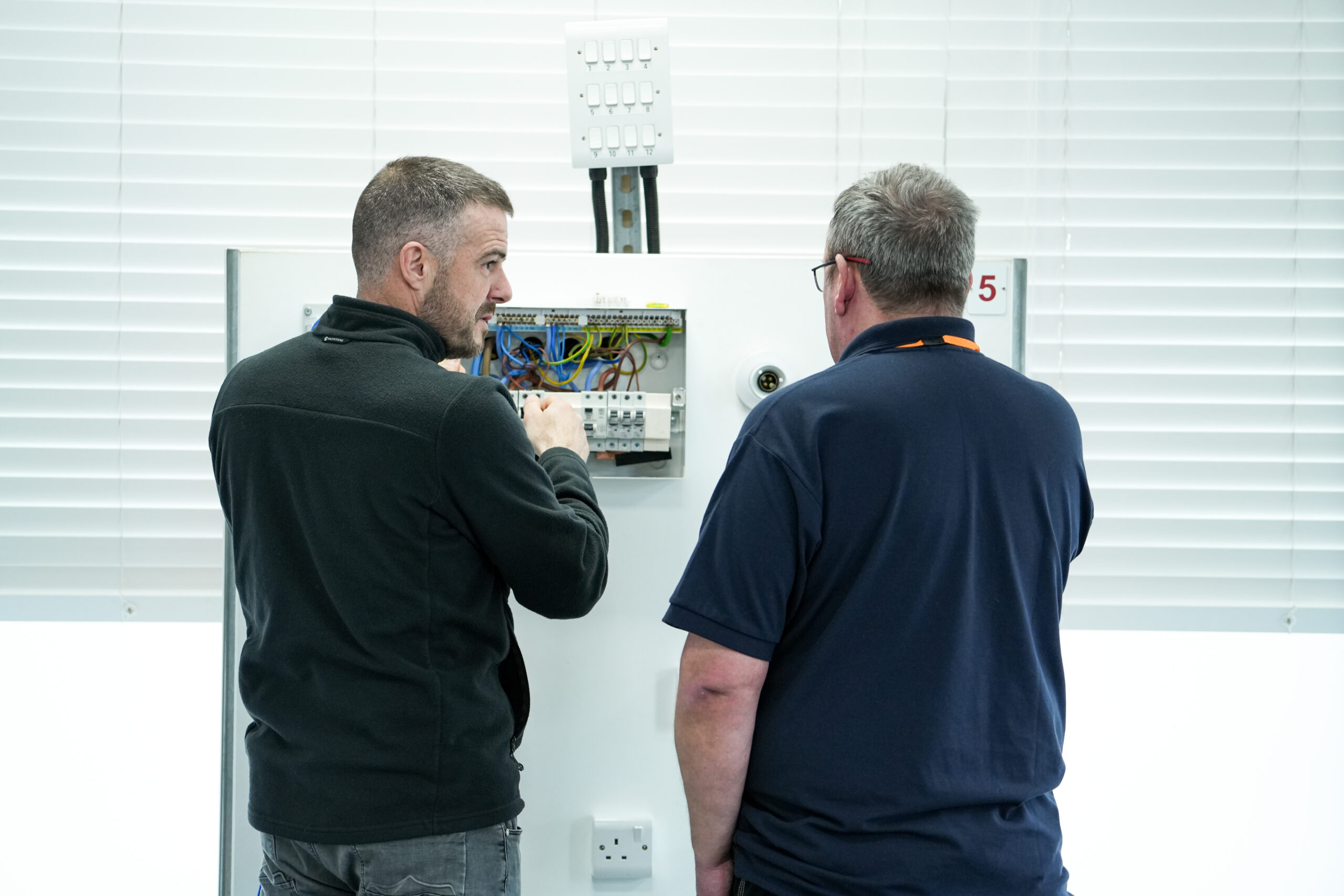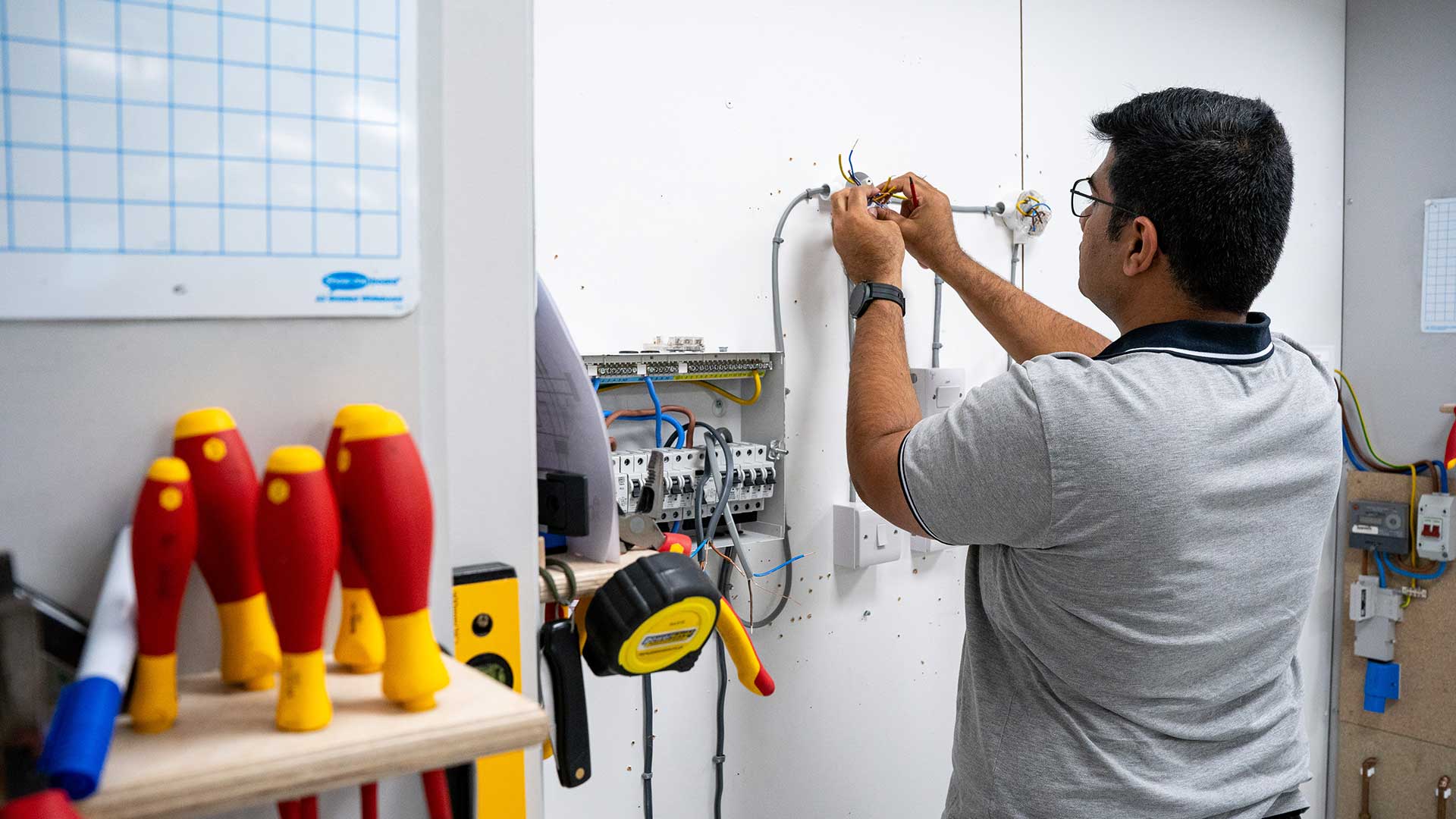The results are in!
The latest electricians salaries results are now in. You may remember that last year we posted that the average UK electrician salary was £30,765. This year’s results show that there has been a slight increase of 0.1% with the average electrician earning £30,784.
Salary ranges will depend on a number of factors eg, experience, location, qualifications, professional credentials (NVQ and ECS Card level), employer and job responsibility. Of course the starting salary for an entry level electrician will inevitably be lower, but will rise once they have gained the relevant Electrical NVQs and experience.
Average Electrician Salary (£30,784)
The average salary for electricians is currently £30,784, according to the Office of National Statistics (ONS) and has risen by 0.1% in the last year. This is based on the median value which means that half will earn more than this amount and half will earn less. This is the ONS’s preferred measure of average earnings and is less affected by a relatively small numbers of very high earners that can skew the data upward. The median average gives a better indication of typical salaries than the mean which shows salaries at £31,617.
The data below is based on the 2014, 2015, 2016, 2017 Annual Survey of Hours and Earnings taken from the Office of National Statistics (ONS).
Average Salaries by Trade
Other trades salaries have increased across the board with Roofers showing the biggest increase of 5.8% followed by Plumbers at 4.4%. We believe the reason these salaries have increased more is that they are catching up with the increase seen for electricians last year. When we ran this survey last year we saw that plumbers, carpenters, bricklayers, and tilers salaries had dropped. This year all trades salaries have increased, ranging from 0.1% for electricians to 5.8% for Roofers, however, electricians still earn most. However, it is good to report that electricians still earn nearly £1000 more than any other trade on average.
Hourly Rates / Day Rates (£20-£60 – £ Per Hour / £180 – £350 Per Day)
Obtaining accurate data is a challenge as many electricians are either self-employed or contracting. Most self-employed electricians generally charge a day rate, an hourly rate or fixed rate for individual jobs, therefore their earnings tend to fluctuate year on year, because work is not guaranteed. This iswhy it is difficult to gauge exactly how much they earn as there are no statistics available on a national level for this.
However, depending on where you are based in the country, on average it appears that an experienced electrician working in the South East charges £45 per hour or £350 per day.
Whilst self-employed electricians tend to earn more than those who are employed, there are other costs to take into account such as the cost of tools, van, costs of quoting and business insurance and your registration on a competent persons scheme.
How realistic is it to earn over £30K as an electrician?
Self employed electricians are more likely to earn more than those employed as they are not tied down by company pay categories. Whilst salaries represent what you can earn when employed by a company the amounts earned as a contractor tends to be more realistic.
An experienced self-employed electrician should be earning on average above £30K per year. In fact our research suggests that earnings are more likely to be around £35-40K per year, with this figure being higher if working in London and the south east.
Ways to earn more
As with any career, the better you are at your job the more you can earn. There are a number of ways you can increase your earnings, and this really comes down to how much effort you are prepared to put in.
- Overtime – If you are employed and working on a job where deadlines need to be met then overtime is a great way to increase your earnings. Especially as overtime is often paid at a higher hourly rate.
- Agency work – if you are starting out then working for an agency is an option. This will allow you to gain the confidence and experience to then go on to apply for contracts direct to building and contracting companies.
- Up-skilling – if you want to progress in your career as an electrician then taking further electrician training to improve your grade could increase your earning potential. Electrical Courses to consider are the C&G 2394/95 Inspection & Testing Courses – For Approved Electrician status and the C&G 2396 Electrical Design course – For Site Technician status.
- Going self employed – once, you’ve got some experience and made some good contacts and you’re being offered work outside of your employed day job, you might find that it’s time to go self-employed. This means that you will be able to earn a much higher wage once you’ve set up on your own.
What are trainees salaries like?
Apprentices tend to earn below the minimum wage, however the benefit here is that they can earn while gaining a qualification. The current National Minimum Wage for apprentices in their first year is £3.50 per hour, although most employers will pay more and research shows that the average salary is approximately £170 per week. However, apprentices can start earning a higher salary once they have completed their training and get qualified.
An option many of our customers at Trade Skills 4 U choose is to front load their training and complete their technical certificates first (C&G2365 Level 2&3). This allows those entering the market as electricians mates to earn between £21-25,000 per year. This is a guide and will vary depending on the employer, where you work in the country, and the type of job you have been employed to do.
JIB Wage Grades
Each year the JIB publish wage grades on their website, however, whilst the JIB have clear guidelines for what an electrician can earn these are only guidelines and not every employer will stick to these. Since last year, the figures below have increased by approx. 1.9%
From and including Monday 2nd January 2017, the JIB suggests you should earn the following hourly rates if you have your own transport:
National Standard Rates:
- Trainee Electrician – £11.79 – £13.95
- Electrician – £14.68
- Approved Electrician – £15.92
- Site Technician – £17.92
And if you live in London or the south east you should expect:
- Trainee Electrician – £13.20 – £15.64
- Electrician – £16.45
- Approved Electrician – £17.83
- Site Technician – £20.07
A great way to increase your earnings potential is to get plenty of on the job experience, build a good reputation, work hard and improve your knowledge through further training. The courses below will help you to qualify for the higher pay grades:
- Trainee Electrician – apprenticeship or electricians mate usually with C&G 2365 Diplomas
- Electrician – relevant qualifications, Level 3 NVQ & AM2 (These days a 2357)
- Approved Electrician – as per number 2 plus periodic inspection and testing qualification such as the C&G 2394/2395
- Site Technician – As per number 3 plus over 5 years’ experience (3 of which in a supervisory role) plus a level 4 qualification such as a HNC
The Sky’s the limit
The salary ranges listed in this article are only guidelines. We believe that the sky’s the limit when it comes to what you could actually earn and as mentioned above this will depend on a number of factors, however, from our experience and from talking to our students, we believe that if you are prepared to put in the hours to build your business and work hard then there is no limit to what you could potentially earn.
We know that electricians are the highest earners among the trades, and to support this there have been some very interesting articles posted recently, one of which is a little extreme and did create quite a bit of stir on social media. I hope you enjoy reading them and wonder whether you agree with what they are saying!




























